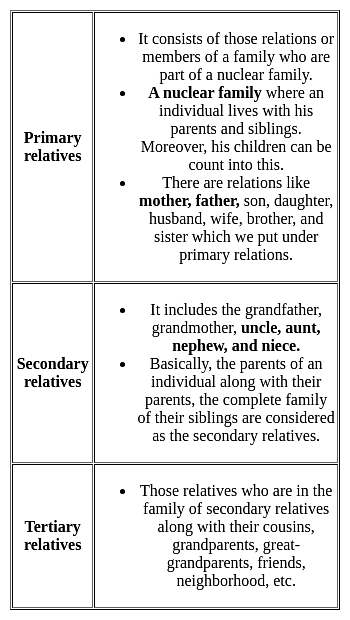CTET & State TET Exam > CTET & State TET Tests > Child Development and Pedagogy for CTET Preparation > CDP (Socialization Processes) - CTET & State TET MCQ
CDP (Socialization Processes) - CTET & State TET MCQ
Test Description
10 Questions MCQ Test Child Development and Pedagogy for CTET Preparation - CDP (Socialization Processes)
CDP (Socialization Processes) for CTET & State TET 2024 is part of Child Development and Pedagogy for CTET Preparation preparation. The CDP (Socialization Processes) questions and answers have been
prepared according to the CTET & State TET exam syllabus.The CDP (Socialization Processes) MCQs are made for CTET & State TET 2024 Exam. Find important
definitions, questions, notes, meanings, examples, exercises, MCQs and online tests for CDP (Socialization Processes) below.
Solutions of CDP (Socialization Processes) questions in English are available as part of our Child Development and Pedagogy for CTET Preparation for CTET & State TET & CDP (Socialization Processes) solutions in
Hindi for Child Development and Pedagogy for CTET Preparation course. Download more important topics, notes, lectures and mock
test series for CTET & State TET Exam by signing up for free. Attempt CDP (Socialization Processes) | 10 questions in 10 minutes | Mock test for CTET & State TET preparation | Free important questions MCQ to study Child Development and Pedagogy for CTET Preparation for CTET & State TET Exam | Download free PDF with solutions
Detailed Solution for CDP (Socialization Processes) - Question 1
CDP (Socialization Processes) - Question 2
A child is crying on seeing his mother who is busy in working on the laptop. The socialization of child is affected by which agent of socialization?
Detailed Solution for CDP (Socialization Processes) - Question 2
| 1 Crore+ students have signed up on EduRev. Have you? Download the App |
CDP (Socialization Processes) - Question 3
Which of the following can be done by the community to improve school education?
(i). Increased retention of girls in school
(ii). To boost morale of school teachers
(iii). Support teachers
Detailed Solution for CDP (Socialization Processes) - Question 3
CDP (Socialization Processes) - Question 4
Children who are more than four years old like to play with ______.
Detailed Solution for CDP (Socialization Processes) - Question 4
CDP (Socialization Processes) - Question 5
There is relation like _________ which we put under primary relation whereas _________ is called secondary relative.
Detailed Solution for CDP (Socialization Processes) - Question 5
CDP (Socialization Processes) - Question 6
Which one of the following are the basic elements of socialization?
1. communication
2. social roles
3. culture
4. school
Detailed Solution for CDP (Socialization Processes) - Question 6
CDP (Socialization Processes) - Question 7
Assertion (A): Socialization takes place through participation in games and sports.
Reason (R): Games and sports inculcate social habits.
Which one of the following state statements is correct?
Detailed Solution for CDP (Socialization Processes) - Question 7
Detailed Solution for CDP (Socialization Processes) - Question 8
CDP (Socialization Processes) - Question 9
Gender Socialisation begins at birth and occurs through all the following major agent of socialisation, except: -
Detailed Solution for CDP (Socialization Processes) - Question 9
Detailed Solution for CDP (Socialization Processes) - Question 10
|
68 videos|63 docs|36 tests
|
Information about CDP (Socialization Processes) Page
In this test you can find the Exam questions for CDP (Socialization Processes) solved & explained in the simplest way possible.
Besides giving Questions and answers for CDP (Socialization Processes), EduRev gives you an ample number of Online tests for practice
|
68 videos|63 docs|36 tests
|
Download as PDF


















